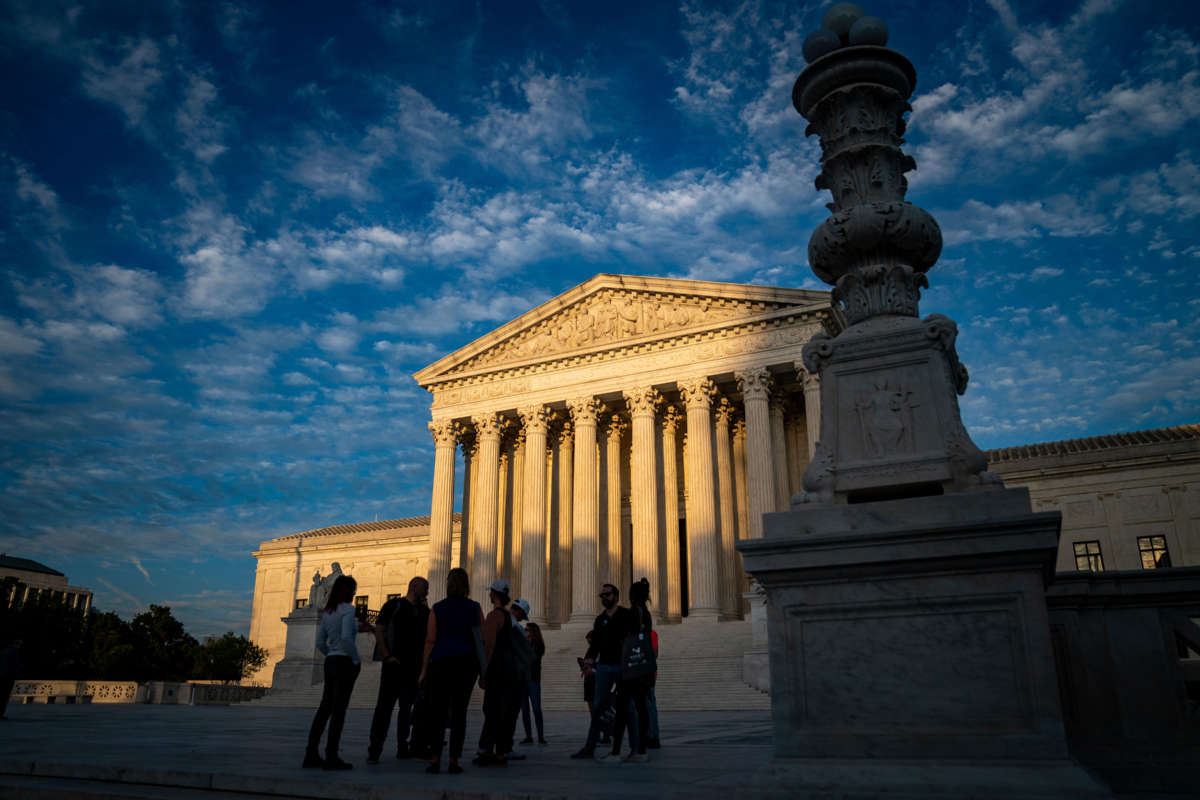On Thursday, the U.S. Supreme Court refused to hear an appeal from former President Donald Trump regarding the trove of government documents — some of which were marked as classified — that were retrieved from his Mar-a-Lago estate this summer.
The order means that a special master, tasked with examining thousands of government documents that were removed from Trump’s Palm Beach, Florida, home, will be barred from examining documents that are marked as classified.
The FBI executed a search warrant in early August based on evidence that Trump had classified documents in his possession, following two attempts to retrieve the documents earlier this year. Two weeks after the search warrant was executed on his estate, Trump’s lawyers demanded that a special master review all of the records that were removed, including more than 100 classified documents, in order to determine whether any of Trump’s legal privileges had been violated.
Many legal experts have questioned whether the classified documents could be considered privileged, as they belong to the U.S. government rather than Trump, even if they are presidential records from his time in the White House. Nevertheless, Trump-appointed district court Judge Aileen Cannon agreed to appoint a special master, naming Judge Raymond Dearie to the position.
As part of her order appointing a special master, Cannon stated that the DOJ could not continue examining the documents marked as classified, claiming that the classified markings didn’t necessarily mean that Trump’s executive privilege didn’t apply. The DOJ appealed that rule, and in mid-September, a three-judge panel of the 11th Circuit Court of Appeals sided with them, placing a stay on Cannon’s order and allowing investigators to examine the classified documents.
“For our part, we cannot discern why [Trump] would have an individual interest in or need for any of the one-hundred documents with classification markings,” the ruling from the 11th Circuit Court panel of judges said.
Trump’s legal team appealed that ruling to the Supreme Court earlier this month, asking that the special master retain the ability to determine whether or not the classified documents were privileged. The Court responded this week by issuing a single-sentence order stating that it would not hear the appeal.
“The application to vacate the stay entered by the United States Court of Appeals for the Eleventh Circuit on September 21, 2022, presented to Justice [Clarence] Thomas and by him referred to the Court is denied,” the order said.
None of the justices on the Court explained the reasoning for their decision, and it is unknown how many of them sided with Trump.
The Court’s refusal to entertain Trump’s appeal means that the DOJ can continue to examine the documents marked as classified, and that Dearie will be barred from including them in his examination of the documents.
Join us in defending the truth before it’s too late
The future of independent journalism is uncertain, and the consequences of losing it are too grave to ignore. To ensure Truthout remains safe, strong, and free, we need to raise $48,000 in the next 8 days. Every dollar raised goes directly toward the costs of producing news you can trust.
Please give what you can — because by supporting us with a tax-deductible donation, you’re not just preserving a source of news, you’re helping to safeguard what’s left of our democracy.
